- Active PSIA-AASI Certified Western Member in good standing
- Minimum Level 2 Certification in your primary discipline
- Level 3 Certified in your primary discipline
- Children's Specialist Level 1 recommended
- Approval of your snowsports director, currently working as a resort trainer or moving into a training role in the near future
- Snowboard Technical Manual (2015)
- Alpine Technical Manual (2014)
- Core Concepts for Snowsports Instructors (2008)
- Teaching Snowsports Manual (2018)
- Adult Alpine Teaching Handbook, 2nd edition (2015)
- Snowboard Teaching Handbook, 2nd edition (2015)
Resort Trainer is a 2-day multi discipline event designed to provide current and future resort trainers with the necessary tools to support the needs of our instructors, our member schools, and the guests we serve. Participants will foster their literacy of PSIA- AASI standards and curriculum and develop the necessary skills to coach, support, and mentor instructors at their home resort.
Resort Trainer is set up for ongoing, continuous improvement and education. The option to attend this event multiple times is encouraged. This event is an at-will opportunity and requires the approval of your snowsports school director. Having an open is mind is key to the success of this program and your personal growth as Resort Trainer.
To register to attend Resort Trainer, please contact your snowsports school director. These are private events, not listed on the public calendar, and can only be accessed through your director or training manager. Snowsports school directors can request custom events at any time, or request access for individual trainers by contacting the Western Leadership.
Course Schedules are subject to change due to terrain, weather, crowds, group size, snow conditions, etc. Please use this information as a rough guideline.
Resort Trainer Course
Day 1
8:30am – Meet your clinician leader at the designated meeting location (a confirmation email noting the location will be emailed to you the day prior)
9:00am – 4:00pm – Plan to be on snow (lunch break will be provided)
Day 2
8:30am – Meet your clinician leader at the designated meeting location
9:00am – 4:00pm – Plan to be on snow (lunch break will be provided)
- Master the PSIA-AASI Certification Standards and Curriculum. Explore and understand the wealth of learning resources online, navigating where valuable content lies and how to support access for candidates and our fellow staff at our home resorts. Review and discuss the performance guides, teaching skills, people skills, technical skills, assessment forms, assessment criteria, and learning outcomes.
- Recognize the key differences between presenting a lesson and providing a clinic. Build language tools that help differentiate between clinics and lesson and understand why the language changes. You will be given opportunities to present clinics within the group that you challenge your personal beliefs or your staff at your home resort. Clinic topics could include class management, C.A.P. Model for children or adults, providing guests with individual feedback and attention, internal vs external cues, movement analysis, and addressing group dynamics.
- Explore tools for engaging multidiscipline groups with varying levels of experience and certification. We will learn to respect, support, and allow for accessible conversations that encourage inclusion and the sharing of experiences. We will learn how and when to be the Guide on the Side and when to be the Sage on the Stage. We will increase self-awareness and help each other by providing meaningful constructive feedback to support team identity, collaboration, and positive group interactions. Everyone will learn to participate, contribute, and have an equal say. You may receive feedback from the whole group if and when necessary. We will acknowledge when people are comfortable in the group, and we will acknowledge when people are not. Real life problem solving will occur to help everyone to be able to walk away with the tools to be a better person and trainer.



